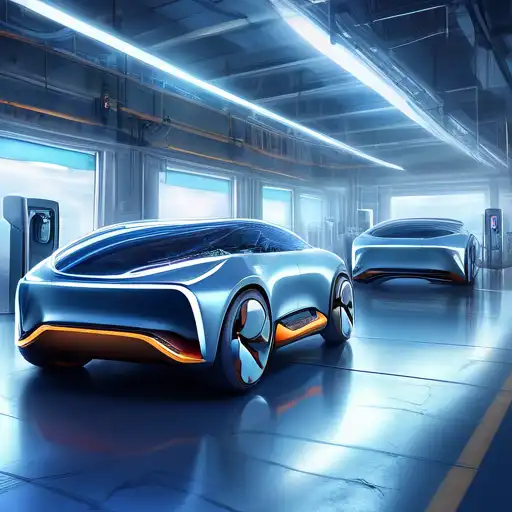The Dawn of a New Era in Automotive Technology
The automotive industry is undergoing a transformative shift, with electric vehicles (EVs) and cutting-edge automotive technologies leading the charge. This revolution is not just about replacing the internal combustion engine; it's about reimagining the future of transportation. From advancements in battery technology to autonomous driving systems, the sector is evolving at an unprecedented pace.
Electric Vehicles: Leading the Charge Towards Sustainability
Electric vehicles have moved from niche to mainstream, thanks to significant improvements in battery life, charging infrastructure, and affordability. Companies like Tesla, Nissan, and Chevrolet are at the forefront, offering models that cater to a wide range of consumers. The environmental benefits of EVs, combined with lower operating costs, are making them an increasingly attractive option for drivers worldwide.
Breakthroughs in Battery Technology
At the heart of the EV revolution is battery technology. Recent advancements have led to batteries that are more efficient, longer-lasting, and faster to charge. Solid-state batteries, for example, promise to revolutionize the industry by offering higher energy density and improved safety. These innovations are crucial for addressing range anxiety and making EVs more accessible to the average consumer.
Autonomous Driving: The Future of Transportation
Another area of rapid advancement is autonomous driving technology. Companies like Waymo and Tesla are testing vehicles that can navigate without human intervention, promising to reduce accidents and improve traffic flow. While fully autonomous cars are still in the testing phase, features like adaptive cruise control and lane-keeping assist are already making driving safer and more convenient.
Connectivity and Smart Features
Modern vehicles are becoming increasingly connected, offering features that were unimaginable a decade ago. From real-time traffic updates to remote vehicle control via smartphone apps, these innovations are enhancing the driving experience. Furthermore, vehicle-to-everything (V2X) communication is set to improve road safety and efficiency by enabling cars to interact with each other and with road infrastructure.
Challenges and Opportunities Ahead
Despite the progress, challenges remain. The need for more widespread charging infrastructure, the environmental impact of battery production, and the high cost of some technologies are hurdles that need to be overcome. However, the opportunities for innovation and growth in the automotive sector are immense, with the potential to significantly reduce carbon emissions and transform how we think about transportation.
As we look to the future, it's clear that electric vehicles and automotive technology advances will continue to play a pivotal role in shaping the landscape of mobility. With ongoing research and development, the dream of a sustainable, efficient, and safe transportation system is becoming a reality.
